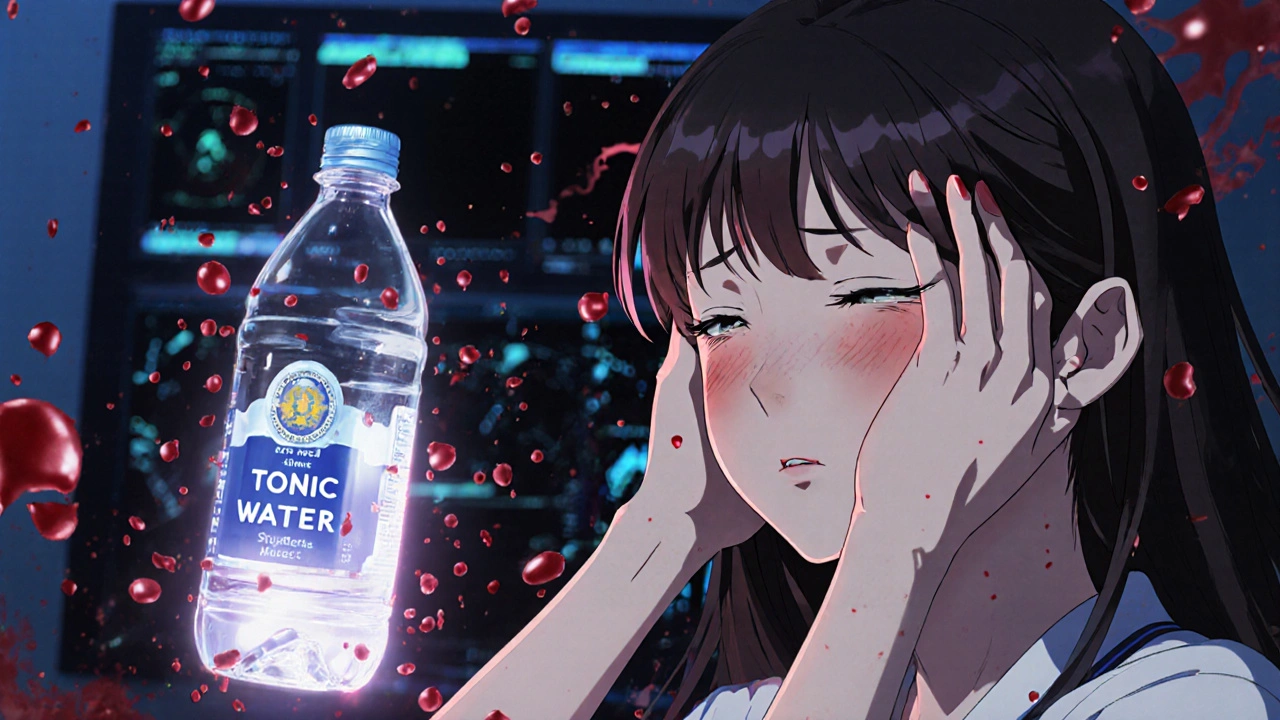
Drug-induced thrombotic thrombocytopenic purpura (TTP) is a rare but deadly reaction to certain medications like quinine, clopidogrel, and cyclosporine. Learn the warning signs, which drugs are most dangerous, and what to do if you suspect TTP.
When a medication triggers drug-induced TTP, a life-threatening blood disorder where tiny clots form in small blood vessels, destroying platelets and damaging organs. Also known as thrombotic thrombocytopenic purpura, it’s not common—but when it happens, it moves fast. Unlike inherited forms, drug-induced TTP shows up after taking certain drugs, often without warning. It’s not an allergy. It’s not a side effect like nausea or dizziness. It’s a full-system breakdown that needs emergency care.
Some drugs are known to set this off. quinine, a compound once used in malaria treatment and tonic water, is one of the most documented triggers. clopidogrel, a blood thinner prescribed after heart attacks or strokes, has also been linked to cases, especially in the first two weeks of use. Even chemotherapy drugs, like mitomycin C and gemcitabine, can cause it in cancer patients. These aren’t random reactions—they’re biological responses tied to how the drug interacts with the body’s clotting system, often involving the ADAMTS13 enzyme that normally keeps clots in check.
What does it feel like? You might get unexplained bruising, tiny red dots on your skin, fatigue, confusion, or headaches. Fever and shortness of breath can follow. These aren’t just "bad days." They’re signs your blood is clotting where it shouldn’t, starving organs of oxygen. Doctors test for low platelets, elevated bilirubin, and signs of kidney stress. If drug-induced TTP is suspected, stopping the trigger drug is step one—but that’s not enough. Plasma exchange is the gold standard treatment, flushing out the bad antibodies and replacing them with healthy plasma.
You won’t find this in every drug’s label. It’s rare, so it’s easy to miss. But if you’re on a medication linked to this condition and suddenly feel off—really off—don’t wait. Go to the ER. Early treatment saves lives. The posts below cover related topics: how blood thinners like warfarin and clopidogrel affect clotting, how herbal supplements like Dong Quai can worsen bleeding risks, and how drug interactions can quietly push your body past its limits. You’ll find real-world guidance on spotting hidden dangers, managing medications safely, and knowing when to act fast.

Drug-induced thrombotic thrombocytopenic purpura (TTP) is a rare but deadly reaction to certain medications like quinine, clopidogrel, and cyclosporine. Learn the warning signs, which drugs are most dangerous, and what to do if you suspect TTP.